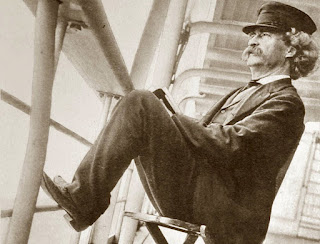Lord Byron in Albanian dress painted by Thomas Phillips in 1813.
“And thus the heart will break, yet brokenly live on.” ― George Gordon Byron
Mad, Bad, and Dangerous to Know was a phrase used by Lady Caroline Lamb to describe George Gordon Byron, 6th Baron Byron.
Ghost of Mark Twain here -- I knew his daughter and she was quite the same way!
1506 -- Mobs in Lisbon, Portugal slaughter 2,000 Jews. Makes you think Jesus might have wondered why He even bothered on "Good" Friday, don't it?

Marie Antoinette, at the age of thirteen; this miniature portrait was sent to the dauphin, so he could see his bride before he met her, by Joseph Ducreux (1769)
1770 -- Marie Antoinette and Louis XVI married by proxy. The marriage was the result of diplomatic exchanges,
during which poor Antoinette even had to undergo oral surgery to be deemed pretty enough for Louis.
Talk about looking a gift horse in the mouth, pilgrims!
Her brother stood in as the groom of the wedding.
Reminds me of some piney-woods marriages I heard tell of.
Little Antoinette didn't actually meet Louis until May of that year!
1775 -- The American Revolution started on this day.
"The shot heard round the world" took place early in the morning in Lexington, Massachusetts on this date
when 700 British soldiers clashed with 77 American revolutionists.
It was the beginning of 7 years of conflict between the two countries that eventually led to American independence.
And it seems the politicians have been trying to undo it ever since.
1928 -- On this date, the final volume of the Oxford English Dictionary (first edition) was published.
The original estimate was that the complete four-volume set would take ten years;
when it took five years to get to "ant," the editors knew they had underestimated spectacularly.
They did not know that they were being significantly helped by a contributor from the insane asylum.
William Chester Minor, also known as W. C. Minor (June 1834 – March 26, 1920)
was an American army surgeon and one of the largest contributors of quotations to the Oxford English Dictionary.
He was held in a lunatic asylum at the time for the shooting of a man his paranoia convinced him had broken into his room.
"Churchill's Grave" was written near the end of another April — that of 1816, as Byron was waiting at Dover to leave England for the last time.
Delayed by unfavorable winds, he visited the grave of Charles Churchill, a poet whom he admired,
and also one who had attracted much controversy, and died young.
The poem begins with Byron standing
“Beside the grave of him who blazed
The comet of a season”
It ends with Byron reflecting on a life
"In which there was Obscurity and Fame -
The Glory and the Nothing of a Name."
"And is this all? I thought, —
And do we rip The veil of Immortality? and crave
I know not what of honour and of light
Through unborn ages, to endure this blight?
So soon, and so successless? "
— from Byron's poem, "Churchill's Grave"
1824 -- Lord Byron died on this day in Messolonghi, Greece, while attempting to serve the cause of Greek independence at age 36. He became a Greek national hero.

Lord Byron on his deathbed, by Joseph-Denis Odevaere c. 1826.
(Note the sheet covering his club right foot.)
the poet-soldier's last weeks were as full of indifference and doubt as heroism. The following is taken from a letter of February 5:
"As for me, I am willing to do what I am bidden, and to follow my instructions. I neither seek nor shun that nor any thing else they may wish me to attempt; and as for personal safety,
besides that it ought not to be a consideration, I take it that a man is on the whole as safe in one place as another; and, after all, he had better end with a bullet than bark in his body."
1882 -- Charles Darwin died of a heart attack in Downe, Kent, England. He was 71
1942 -- The New Vichy Government headed by Pierre laval at the bidding of his German masters
in an attempt to bring the insurgent French people back into line with Nazi ruling
by promising to protect the people from the Nazi Regime by gaining concessions.
1956 -- Grace Kelly and Prince Rainier start their honeymoon on Deo Javante II 138ft Yacht but due to heavy seas spent the night in the harbor.
1987 -- THE SIMPSONS premiered, children, and I still do not understand the appeal of Homer!
The popular TV show started off as a cartoon short on the The Tracey Ullman Show.
It ran as shorts for 3 years before being adapted into the 30 minute format. Time magazine once named it the best TV show of the 20th century.
Ever hear of Quintilian?
Quintilian wrote about education and rhetoric, exerting a strong influence in the schools the Romans spread throughout the Empire.
His influence on education continued from his day until the 5th century.
The Humanists at the end of the 14th century renewed interest in Quintilian and a complete text of his Institutio Oratoria was found in Switzerland.
It was first printed in Rome in 1470.
"For hope is but the dream of those that wake."
So there!











.jpg)


.jpg)






















































































































































































Such a wonderful collection of historic information, Roland! I loved this!
ReplyDeleteI thought you might. I'm glad you enjoyed this. :-)
DeleteGood of Twain to come of with Q for the win. He is clever, that one.
ReplyDeleteHe thinks so at least! :-)
Delete